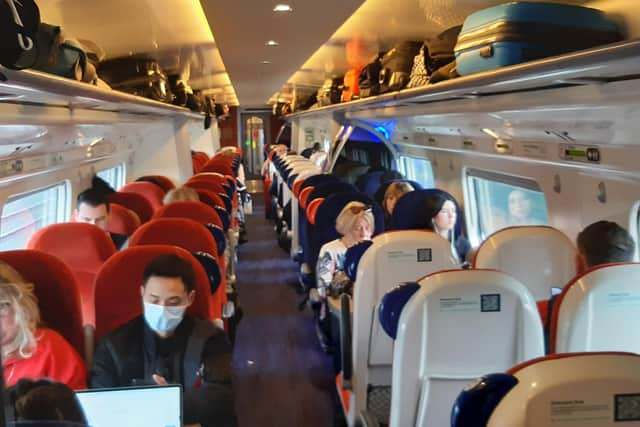Rail travel in Scotland: What I love and hate about travelling by train – Alastair Dalton
While the ScotRail drivers’ dispute which led to trains being significantly curtailed for two months was resolved in July, the British network has been largely brought to a halt on eight days by Network Rail signallers and other rail staff striking, while on Monday, ScotRail conductors and other workers walked out, causing the greatest disruption north of the Border so far.
As an irregular train traveller rather than rail commuter, I’ve been able to avoid the impact of the stoppages, but it got me thinking about what I love and hate about railway transport.
Advertisement
Hide AdAdvertisement
Hide AdLiving in Glasgow, ScotRail offers me a fast service into the city centre that’s quicker and cheaper than by bus for my infrequent journeys.


Travelling there and further afield, most trains have wifi, charging sockets and working toilets. I have the option to work, read or watch something, or enjoy the passing scenery.
None of which are legally available if you’re behind the wheel.
However, the rail system isn’t perfect even when your train hasn’t been cancelled or delayed.
Several things need improved – small and big irritants which would make the whole experience better if sorted.


I’ll start with the small things, like the curse of scrolling information screens at stations which leave you staring at details of an out-of-order lift for what seems ages when you’re desperately trying to find out if the train about to depart is the one you want – especially when the destination screen on the front of the train itself is blank or faulty.
At multiple-platform large stations, it’s even more critical – and Network Rail should install enough screens so all the trains about to leave are immediately visible for the passenger racing to the correct platform.
Then there’s ScotRail’s ticket machines. When pretty much everyone has a standard keyboard layout on their phones, why are those on the machines arranged alphabetically?
Advertisement
Hide AdAdvertisement
Hide AdEven worse, as I’ve encountered twice during the current monsoon season at outside ticket machines, my tickets have been soaked by the dispenser filling up with rainwater – which was met with an infuriating shrug when I pointed it out at the ticket office.
Then there’s other passengers. I knew I should have booked a seat in the Quiet Coach on a London-Glasgow train last month when the man behind me engaged in a series of video calls on loudspeaker. From another man opposite him, electronic pings from a video game added to the cacophony.
Only the catharsis of being able to write about it got me through.
But perhaps the biggest current gripe I’ve heard is lack of information during disruption.
ScotRail has got much better at this, and I’ve been impressed with Avanti West Coast, but I’ve heard some horror stories involving LNER and CrossCountry – where one passenger found far more information online than was being given out.
Returning passengers must be given the best possible service – including when things go wrong.
Comments
Want to join the conversation? Please or to comment on this article.
